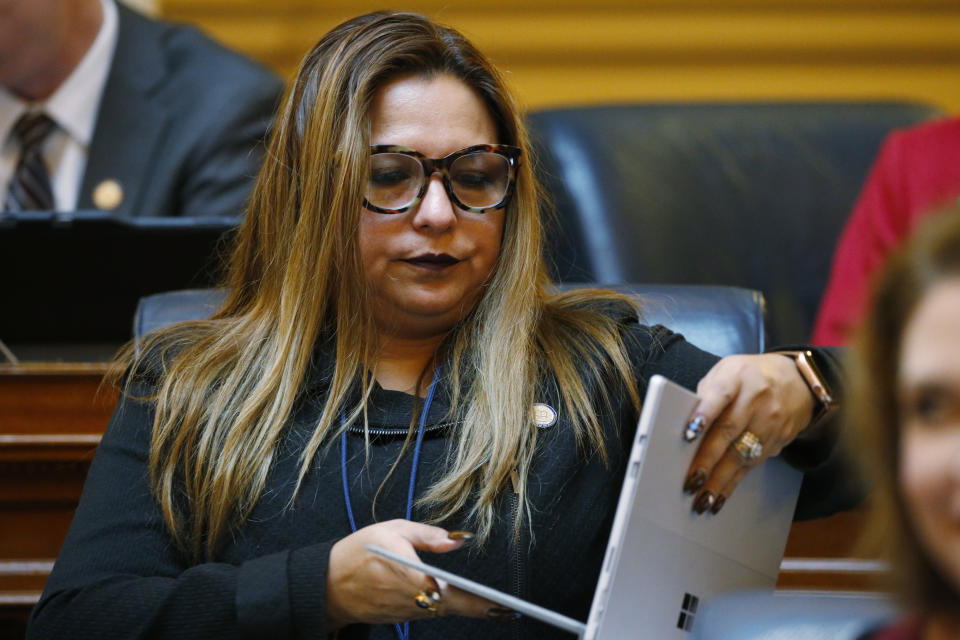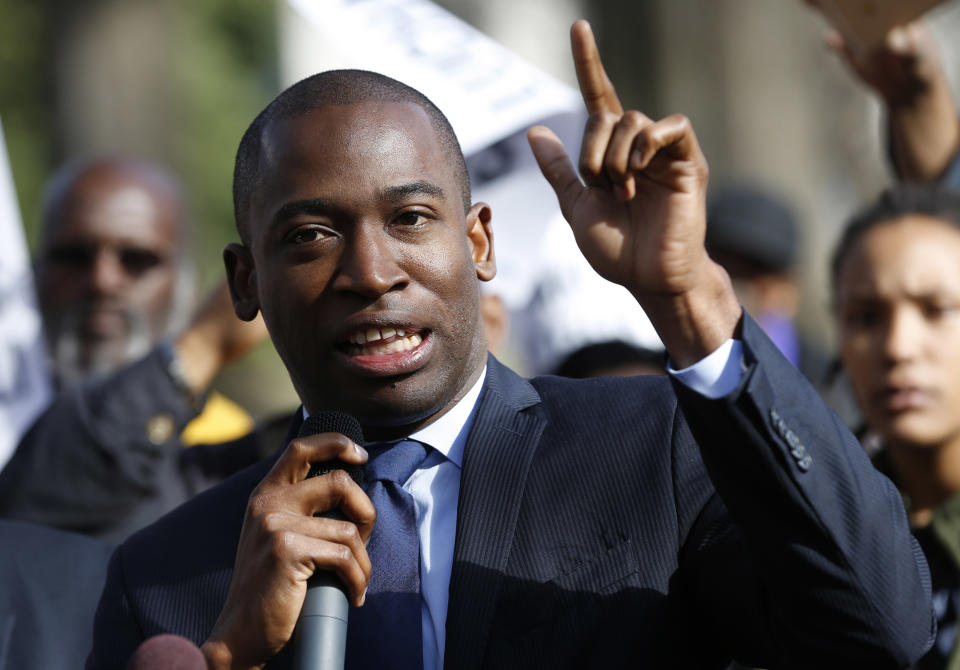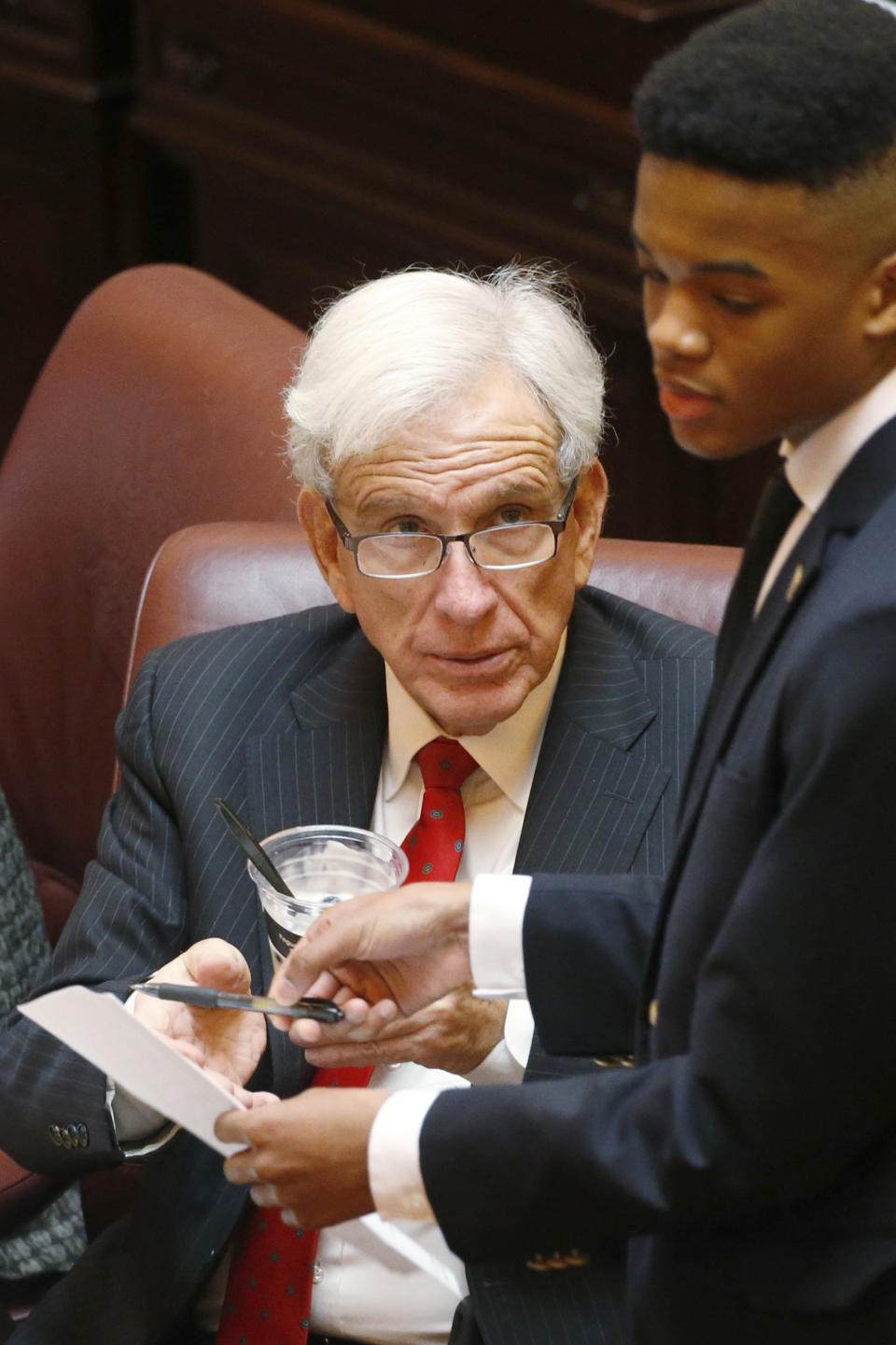Virginia Democrats poised to pass public bargaining measures
RICHMOND, Va. (AP) — Newly empowered Democratic lawmakers in Virginia appear poised to extend collective bargaining rights to at least some public workers, a historic change backed by labor unions and opposed by business associations and many of the state's local governments.
Democrats in the traditionally business-friendly state are split, though, on how many public employees should be included. A sweeping bill that would repeal the state's current prohibition on public sector collective bargaining, clearing the way for both local and state workers to participate, has passed the House but faces opposition in the more conservative Senate.
Senate Majority Leader Dick Saslaw, who is sponsoring a far more narrow proposal that wouldn't include state workers, said this week that he doesn't support the House bill and several other Senate Democrats likely wouldn't vote for it either.
“Let me explain something. The votes, including mine, aren’t there for expansion beyond local government. ... You have to make a choice: Do you want something or is it an all or nothing?" he told supporters of the measure in a committee hearing Monday.
Advocates of expanding collective bargaining to public workers say Virginia is one of only three states — the others being North and South Carolina — with a blanket ban. They argue that allowing public workers such as teachers, police officers and firefighters to join unions that could bargain for them in contract negotiations would give them a stronger voice not only on wages and benefits but also issues like safety and retention.
“Without collective bargaining it’s just a matter of organizing people and then coming here - I don’t want to say begging - but coming to petition time and again," said David Beckles, who has worked for the Department of Corrections for 15 years and came to lobby senators earlier this month.
The House bill is opposed by Republican lawmakers, plus groups including Americans for Prosperity — funded by the powerful conservative-leaning Koch network — the National Right to Work Committee, the Chamber of Commerce, the Virginia Manufacturers Association and a number of local governments.
“This legislation represents a sea change in public employer-public employee relations in Virginia and is unprecedented in our state’s history,” said Jeremy Bennett, a lobbyist for the Virginia Association of Counties.
Critics say public sector collective bargaining can be easily politicized if labor unions use campaign contributions to help elect officials who could then be inclined to extend a more generous contract offer. Critics also argue that unlike public sector bargaining, governments have fewer options, such as relocating a business, to get a union to reduce its demands.
A fiscal impact statement from the Commission on Local Government included cost estimates and dire warnings from localities across the state about implementing the House bill, sponsored by Del. Elizabeth Guzman. Some local governments said the bill would require a real estate tax rate hike. Roanoke estimated a fiscal impact of over $28 million.
A few other localities and local officials have publicly expressed support.
“Workers in the South were barred from bargaining collectively for the same reason that enslaved people were barred from learning how to read. Because people in power know there is power in numbers,” Richmond Mayor Levar Stoney wrote in an op-ed supporting Guzman's bill.
The Fairfax County School Board recently voiced support for giving teachers the right to collectively bargain, and the Loudoun County Board of Supervisors voted last week to endorse Saslaw's bill.
Virginia's union membership rate of about 4% is among the lowest in the nation, according to the Bureau of Labor Statistics. The state is tied with Texas, and only South Carolina and North Carolina had lower rates, at 2.2 % and 2.3%, respectively, according to an analysis released earlier this year.
John Delaney, dean of the Kogod School of Business at American University, said public sector collective bargaining has been shown to have a moderate, consistent positive impact for employees.
“The research shows that workers who are covered by collective bargaining do tend to earn higher salaries and they tend to get greater benefits than similar workers not covered,” he said.
A Senate committee on Monday conformed Guzman's bill to match Saslaw's measure — which would only allow bargaining by employees of counties, cities, and towns that adopt local ordinances authorizing it — before advancing it.
A House committee did the reverse on Tuesday, conforming Saslaw's bill to Guzman's, with one committee member saying he was “confident that Sen. Saslaw will be able to find more votes."
That means the measures are likely headed for a conference committee, where members will attempt to reach a compromise before advancing a bill to Democratic Gov. Ralph Northam, who hasn't taken a public position on either proposal.
Northam “is focused on ensuring that all Virginians have access to a well-paid, safe, and sustainable job," his spokeswoman, Alena Yarmosky, said in a statement. "As always, he will carefully review this legislation if and when it reaches his desk."
Democrats retook control of both chambers of the legislature in November, giving them undivided control of state government for the first time in a generation. They are enacting a slew of progressive priorities, including some of the South’s strictest gun laws, broadest LGBTQ protections, highest minimum wage and some of its loosest abortion restrictions.




